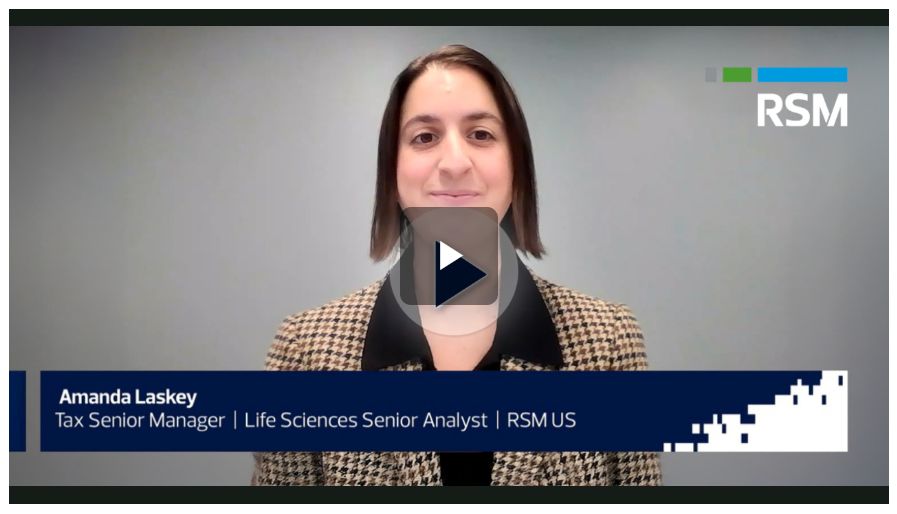- within Food, Drugs, Healthcare and Life Sciences topic(s)
- in United States
- within Strategy, Law Practice Management and Corporate/Commercial Law topic(s)
What trends are driving change this year in the life sciences industry? Amanda Laskey and Brian Winne, senior analysts for the life sciences industry at RSM, share their insights. Watch this short video.
Top trends for life sciences
GLP-1
This class of drugs, originally developed for diabetes, is now showing promise in treating obesity and other metabolic disorders. The potential market for GLP-1 therapies in biopharma is enormous, and companies are racing to develop new treatments. The implications of GLP-1 therapies extend beyond diabetes management, offering hope for a broader range of metabolic conditions. As research progresses, we can expect significant advancements in this area, potentially transforming the landscape of biopharma.
Capital markets and M&A activity
Despite economic uncertainties, the life sciences sector continues to attract significant investment. Mergers and acquisitions are reshaping the industry, with companies seeking to expand their portfolios and capabilities. This trend highlights the resilience and growth potential of the life sciences sector. Investors are keen to capitalize on innovative solutions and emerging technologies, driving a wave of consolidation and strategic partnerships. The dynamic nature of capital markets and M&A activity underscores the importance of staying informed and agile in this evolving landscape.
Digital revolution and AI
From drug discovery to patient care, digital technologies and artificial intelligence are revolutionizing the way we approach health care. Life sciences companies that embrace these innovations are poised to lead the industry. The integration of AI and digital tools enhances efficiency, accuracy and personalized care, paving the way for groundbreaking advancements. As digital transformation accelerates, companies must adapt to harness the full potential of these technologies, ensuring they remain at the forefront of innovation.
Telemedicine and ambulatory surgical centers
The pandemic accelerated the adoption of telemedicine, and now it is becoming a standard practice. Ambulatory surgical centers are providing cost-effective and convenient alternatives to traditional hospital settings. Both areas pave the way for innovation in medtech and biotech. The shift toward telemedicine and ambulatory care reflects a broader trend toward patient-centric solutions, emphasizing accessibility and convenience. This transformation is set to redefine health care delivery, offering new opportunities for growth and development.
BIOSECURE Act and tariffs
The BIOSECURE Act aims to enhance the security of the biopharma supply chain, while potential tariffs on imported medical devices and drugs could affect the cost structures of many companies. Navigating these regulatory changes is crucial for staying competitive. The BIOSECURE Act represents a proactive approach to safeguarding the integrity of the supply chain, ensuring the reliability and safety of biopharma products. Meanwhile, tariffs could pose challenges that require strategic planning and adaptation. Companies must stay vigilant and responsive to regulatory shifts to maintain their competitive edge.
The takeaway
These issues are just the tip of the iceberg. The life sciences industry is evolving rapidly, and staying informed is key to success for many growing businesses.
The content of this article is intended to provide a general guide to the subject matter. Specialist advice should be sought about your specific circumstances.




